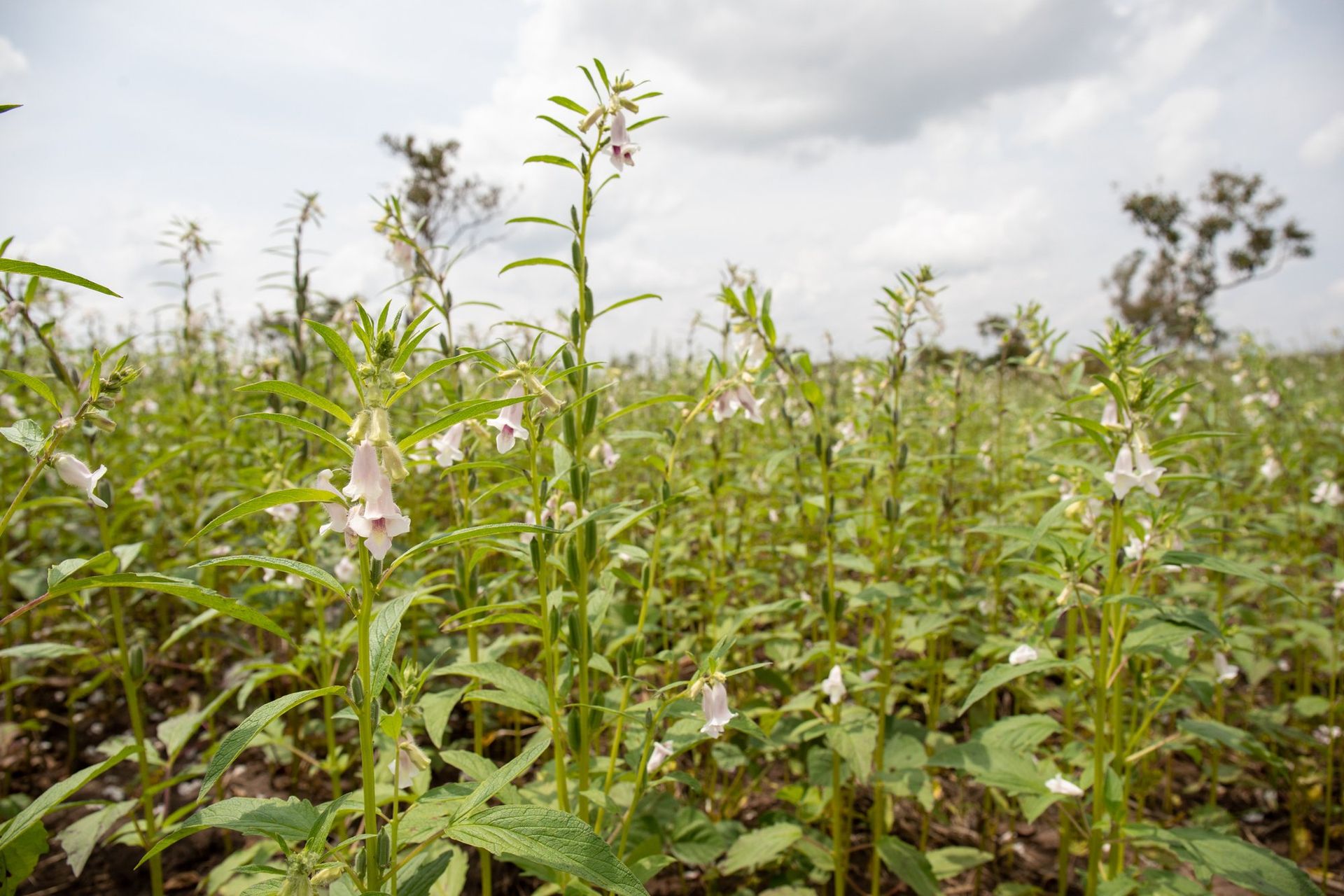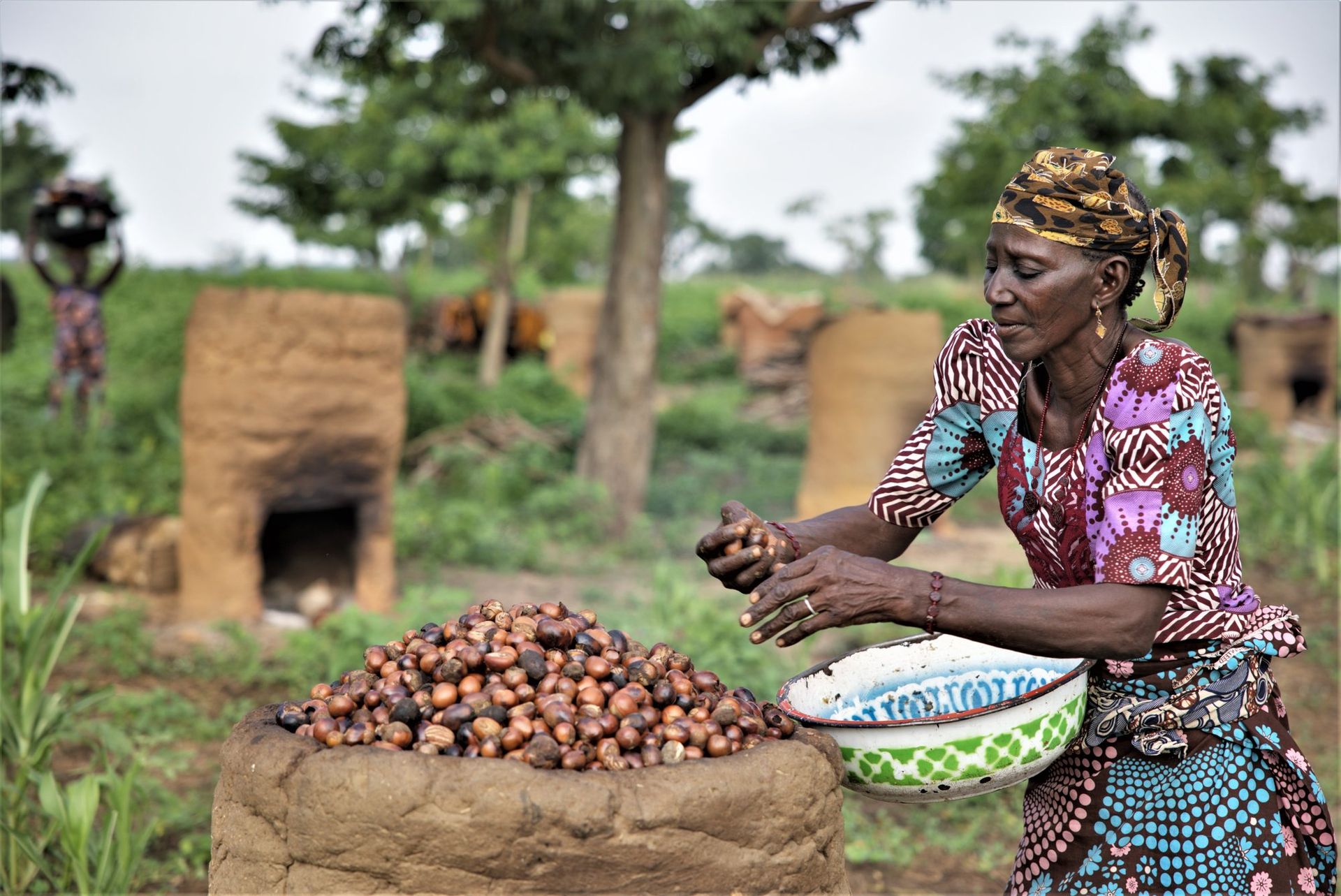Sesame & shea value chain development in Uganda
SUMMARY
Advance Consulting facilitated a partnership consisting of Gulu Agricultural Development Company (GADC), Eye Opener Initiative, DO It, Nwoya District Government, and Lamwo District Government. The partnership contributes to improved livelihoods in Northern Uganda by building inclusive, efficient, and sustainable value chains for organic soybean, sesame, and shea. The project is on track to reach 25,000 farming households.
COUNTRY
Uganda
PERIOD
2020 - 2026
SECTOR
Agriculture
CHALLENGE
The mass rural displacement following the 20-year LRA insurgency and the huge influx of refugees from South Sudan have resulted in deep poverty in northern Uganda. Previously internally displaced people and refugees took up farming but had limited skills a whole generation grew up in refugee camps. This translates into very low yields and low quality attracting low prices in informal value chains. To break the cycle of poverty, these smallholder farmers need access to climate-smart agricultural practices, quality inputs, and remunerative markets.
SOLUTION
The project addresses the high levels of poverty in northern Uganda by empowering formerly internally displaced people and settled refugees from South Sudan to sustainably rebuild their livelihoods through their inclusion in remunerative organic value chains. The project builds organic sesame and shea value chains that provide the target group of 25,000 smallholder farmers with access to the international market. The farmers will be organised in Village Savings & Loans Associations (VSLAs) that help them to access credit and services to make them more productive.
RESULTS
The original project design – with organic cotton– had to be revisited. Heavy rains destroyed most of the crops in the sourcing areas in Northern Uganda. It was concluded that organic soybean would be a good alternative to organic cotton and enables the farmers and local partner to reduce their dependency on cotton as climate change makes growing this crop in Uganda increasingly risky.
By the end of 2026, the projects aims to have achieved the following results:
- 25,000 smallholders have doubled their organic sesame yields.
- 30 Local Seed Businesses included as sesame seed suppliers.
- Sesame and shea processing facilities operational.
- Organic and food safety certification of cotton, sesame, and shea value chains
- Shea trees survey and documented; 50,000 shea seedlings planted.
- EUR 13 million paid out over 3 annual crop seasons to farmers for supply of organic sesame and shea nuts.
- 1,800 tons of organic sesame seed, 1,800 tons of organic sesame oil, and 1,000 tons of organic shea butter exported to Europe.
- 4,000 tons of sesame and shea cake sold to livestock farmers
SUSTAINABILITY
Although including 25,000 farmers in value chains may seem a lot, this number still represents just a fraction of the farmer population in northern Uganda. There is scope for post-project upscaling in the Acholi Sub-Region. GADC is already sourcing from 80,000 farmers, mainly in West Nile Sub-Region.
There is considerable interest from a broad variety of impact finance sources to use GADC as a vehicle to bring stability and alleviate poverty in northern Uganda. International donors see GADC as a way out of continuous grant dependency. Follow-up funding will depend on the success of this SDGP project in delivering the projected impact.

